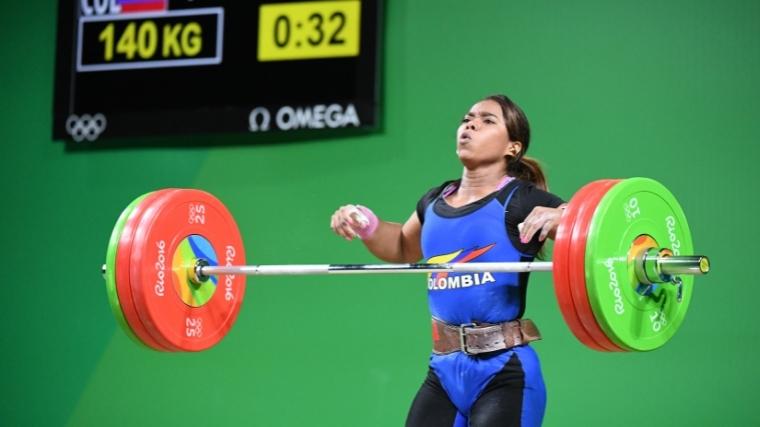The sport of weightlifting is not currently on the International Olympic Committee’s (IOC) list of inclusion for the 2028 Olympic Games, set in Los Angeles, CA. The news was announced on Dec. 9, 2021, on the Olympics’ website. Boxing and modern pentathlon are also, as of now, not included in LA2028. However, the post also states that there’s “a pathway for boxing, weightlifting and modern pentathlon to be potentially included in the LA28 Initial Sports Programme at the IOC Session in 2023.”

[Related: Realize the Strength and Power-Building Benefits of the Clean & Jerk]
Weightlifting and the other two sports’ inclusion in the 2028 Games are dependent on their international federations’ ability to address several areas of improvement before the 2023 IOC session.
The International Weightlifting Federation (IWF) specifically must work toward “towards compliance and effective change of culture. Furthermore, they must successfully address the historical incidence of doping in the sport and ensure the integrity, robustness, and full independence of its anti-doping programme.”
On Dec. 10, 2021, the IWF sent out a press release. In it, Interim President Dr. Michael Irani had this to say:
“We expect that by the end of the first semester of 2022 we will be in a position to hold the IWF elections which will mark the beginning of a new chapter in IWF’s history. While we are eager for the elections to be held as soon as possible, it is imperative that we implement governance changes carefully so that this new chapter begins with a strong legal basis that is beyond reproach. I am confident the future Executive Board of the IWF will be well-placed to satisfy the IOC’s requirements and ensure the place of weightlifting on the Olympic Programme of Los Angeles 2028.”
The IWF and the IOC
The IOC’s current exclusion of weightlifting will not shock many fans of the sport. In December 2020, the IOC announced that weightlifting lost 76 spots for the 2024 Olympic Games in Paris — only 120 athletes will compete in five men’s and five women’s divisions.
The IWF has been turbulent since former President Dr. Tamas Aján was accused of financial corruption and doping cover-ups. Those accusations were affirmed in the McLaren Report, and a flux in leadership ensued: Ursula Papandrea became the Interim President but was ousted by the IWF Executive Board in late 2020. Eventually, Dr. Michael Irani of Britain assumed and still holds the title of Interim President. (British Weight Lifting does not support Irani for re-election, and so a new President must be elected.)
There’s also been a slew of athlete suspensions and suspensions against several IWF member federations amid numerous doping scandals, the most recent being 13 athletes who are provisionally suspended following 2012 sample retests.
[Related: Everything You Need to Know to Build Your First Workout Program]
Amid the tumultuous shift in leadership and accusations of corruption, the IWF has taken steps in improving its governance in the eyes of the IOC. Such measures include re-establishing the Anti-Doping Commission, the IWF Athletes Commission, and the IWF Independent Disciplinary And Ethics Commission. In June of 2021, the IWF Congress met to approve proposed reforms to the IWF Constitution — a crucial step to gaining favor with the IOC — but ultimately adjourned without making a decision. As a result, the IOC, just two months later in August 2021, altered the Olympic Charter to remove a sport’s international federation without the approval of an IOC session.
Since the Charter change, the IWF has claimed that they’ll hold their Athletes Commission elections during the Electoral Congress, set for Dec. 20-21 in Tashkent, Uzbekistan (right after the Weightlifting World Championships take place). However, those elections were recently postponed, adding to the tumultuous circumstances surrounding the World event in Tashkent, including presumed quarantine restrictions that spurred Team China to withdraw from the competition.
For now, the IOC’s decision represents an unfortunate but somewhat unsurprising stance for fans of Olympic lifting. Although the IWF has made recent efforts at bureaucratic and cultural reform, a pattern of marginalization regarding the sport’s presence at the Games level indicates that the sport’s future in the Olympics is far from certain — in either direction.
BarBend will update this article with more information as it’s made available.
[Read More: The Best Weightlifting Belts, Approved by a Certified Weightlifting Coach]
Featured Image: A. RICARDO/Shutterstock